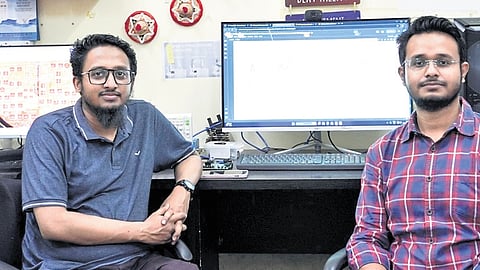

ROURKELA: A research team of National Institute of Technology-Rourkela (NIT-R) has come up with an AI-powered model to improve blood sugar predictions for better diabetes management.
Developed by assistant professor of Biotechnology and Medical Engineering in NIT-R Mirza Khalid Baig and his research scholar Deepjyoti Kalita, the model learns from past glucose trends, insulin dosage, meal information and physical activity data to provide more accurate forecast without needing complex adjustments.
NIT-R sources said new digital health technologies, especially those that use artificial intelligence (AI), offer a way to improve diabetes care and reduce costs. Machine learning has been used in many areas of diabetes research, from basic studies to predictive tools that can help doctors and patients make better and timely decisions.
However, AI learning models, especially predictive models, have a few drawbacks. Many of these models work like a ‘black box’ as their predictions are difficult to understand. This lack of transparency makes it hard for doctors and patients to fully trust them. Moreover, traditional models such as statistical forecasting methods or basic neural networks often fail to recognise long-term glucose fluctuations and require complex fine-tuning.
Baig and Kalita focused on improving glucose forecasting using deep learning techniques. Their approach incorporates a specialised AI model that learns from past blood sugar trends, processes glucose data automatically, identifies patterns and predicts future levels more accurately to do away with traditional forecasting models, that often struggle with long-term trends and require manual adjustments.
Baig said according to the results of ICMR INDIAB study released in 2023, the overall prevalence of diabetes in India is 11.4 per cent and that of prediabetes is 15.3 per cent. “Our core innovation lies in using multi-head attention layers within a neural basis expansion network, which allows the model to focus on the most relevant data points while ignoring unnecessary noise. This results in better performance without the need for large amounts of training data or extensive computing power. By combining precision with efficiency, we aim to provide a practical tool that can be integrated into digital health solutions, helping patients and doctors manage diabetes more effectively.”
The NIT-R’s model claimed to have outperformed existing forecasting techniques by offering improved accuracy in real-time blood glucose tracking to help make timely and personalised adjustments to future insulin doses, meals and physical activity.
Notably, the model has been optimised to work efficiently on devices like smart phones, insulin pump to automate insulin delivery and clinical settings.
The researchers also plan extensive clinical trials of the new technology at hospitals in collaboration with senior diabetologists in Odisha. Their research has been published in the prestigious IEEE Journal of Biomedical and Health Informatics.